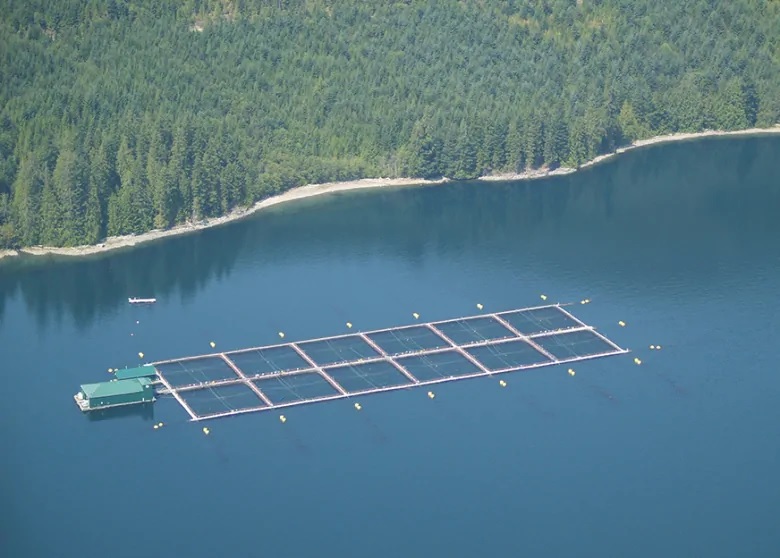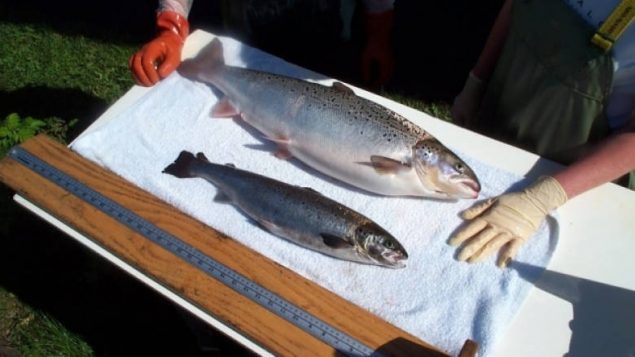Labelling of genetically modified foods has been a contentious issue for years. Europe now requires such labelling, and the U.S recently also requires labelling of certain types of engineered food products.
The Canadian government has recently given approval for the sale of a genetically modified salmon to consumers. The American-based company, AquaBounty Technologies developed the GM fish at its facility in the province of Prince Edward Island.
Canada does not require labelling of GM food products, but the firm says it is considering whether to label its product as genetically engineered.

US food manufacturers must alert US consumers to the presence of genetically modified ingredients through labels, QR codes, or text messages, the US Department of Agriculture announced in late December and can can use these USDA-approved labels for bioengineered crops and products that contain bioengineered ingredients. (USDA)
A statement sent to CBC news from the company said simply, “”We are considering our labelling options and working with potential customers to determine the appropriate approach,”
AquaBounty Technologies has its salmon development facility in Canada’s maritime province of Prince Edward Island and with the approval of Health Canada and Environment Canada, is about to start commercial production.
This will be the first GM food animal sold to consumers. There has been great resistance on the part of companies to label food products as being genetically modified or containing GM products over concerns of public resistance.
In light of that, the Canadian Aquaculture Industry Alliance (CAIA) has released its own statement on the issue saying they support transparency and is reviewing its own stance on mandatory labelling of genetically modified or engineered products. “Salmon farmer members of the Canadian Aquaculture Industry Alliance (CAIA), representing virtually all farmed salmon in Canada, do not farm or sell GE farmed salmon, and are not growing or researching genetically modified salmon”.

A British Columbia farmed salmon operation. Canada’s aquaculture industry wants consumers to know that none of their fish are genetically modified and say consumers should ask about the origins of the fish they buy from retailers (BC Salmon Farmers Association)
Canada is the world’s fourth largest producer of farmed salmon. The world’s largest aquaculture company, MOWI (formerly Marine Harvest), operates salmon farms and processing plants in the Pacific coast province of British Columbia has said it does not support commercial production of genetically engineered (transgenic) fish for human consumption.
For its part the BC Salmon Farmers Association, representin 59 businesses and organisations in the industry in the province. It has added its voice to the issue in a very similar statement to that of the CAIA. “Our farmers feel they are producing a good quality, economically viable product as is, and there is no interest in pursuing modification, the BCSFA said, adding its position is consistent with that of the International Salmon Farmers Association”.
The U.S Food and Drug Administration (FDA) meanwhile has recently removed barriers to the sale of the AquaBounty salmon to American consumers.
The CAIA for its part is encouraging consumers to ask retailers where their fish comes from.
Additional information-sources







For reasons beyond our control, and for an undetermined period of time, our comment section is now closed. However, our social networks remain open to your contributions.